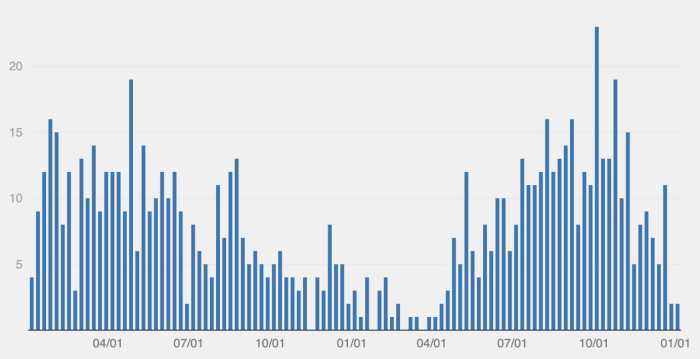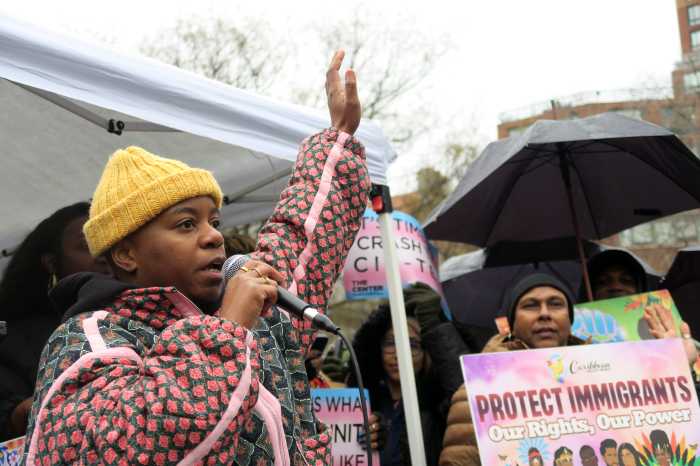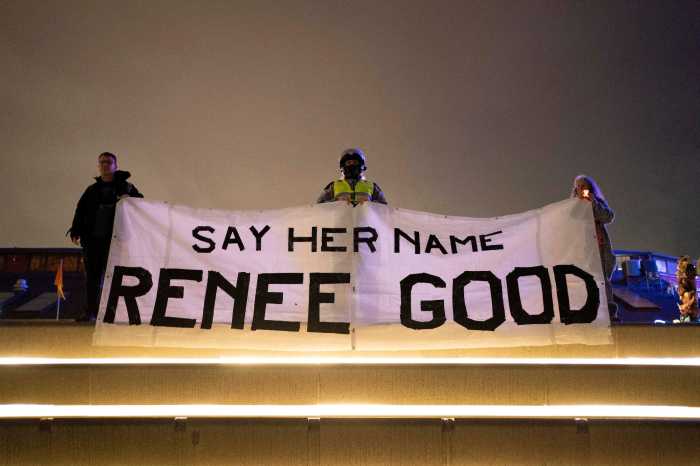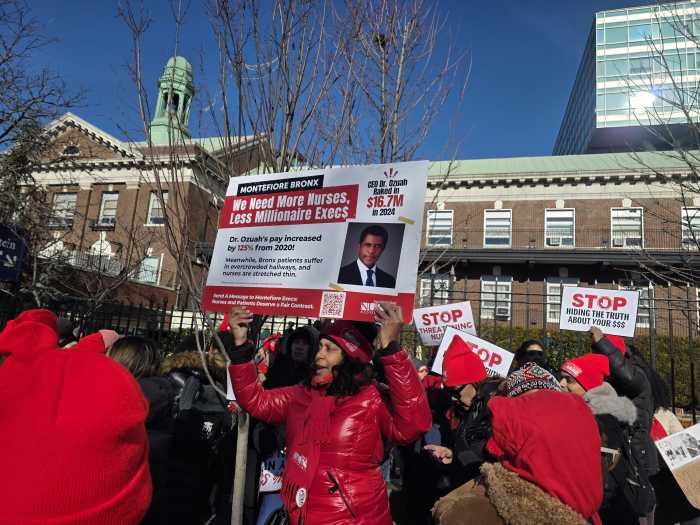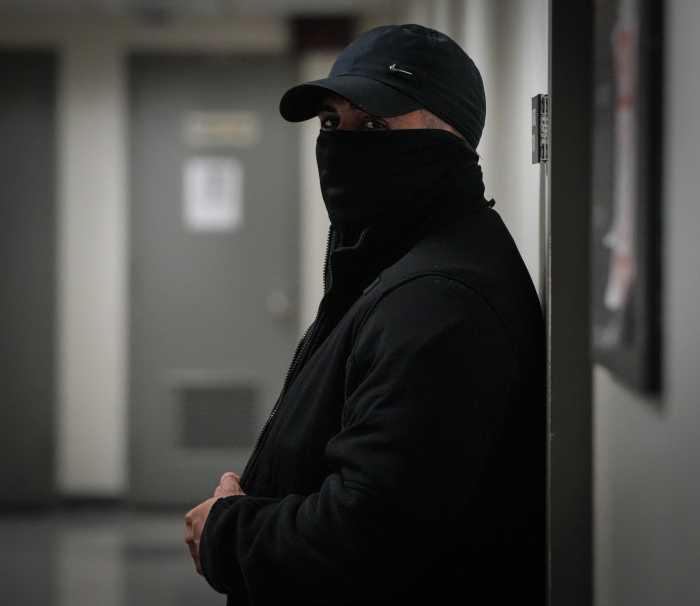BY PAUL SCHINDLER | After a very brief statement in which he said he was “sorry” for killing George Weber and felt “regret” for the pain he caused the slain man’s family, John Katehis received the maximum sentence of 25 years to life in prison.
Convicted by a Brooklyn jury on November 15 of second-degree murder, the 19-year-old Katehis opened his statement by saying, “As much as I’d like to, I can’t undo it.”
After finishing his statement at the December 13 sentencing hearing, Katehis’ attorney, Jay Cohen, cited his client’s youth –– he was 16 when he killed Weber –– in asking the court for “compassion.” After that, Judge Neil J. Firetog, without any comment, handed down the maximum sentence, under which Katehis must serve at least 25 years, less the two-plus years spent in jail since his arrest, before being eligible for parole.
For a moment after receiving his sentence, Katehis kept his head facing forward, but as he was about to be led from the courtroom, he turned back toward the gallery, where his father Spiro sat with several young women, and showed a grin.
Weber, a 47-year-old journalist and gay man, met Katehis in March 2009, after the younger man placed an ad on Craigslist offering oral sex in return for money. The two men corresponded via email over several days, with Weber seeking to be tied up and smothered, an act Katehis agreed to. The two met in Weber’s Carroll Gardens apartment after Katehis traveled there from his parents’ home in Queens.
Katehis stabbed Weber a total of 50 times.
In her closing statement to the jury last month, Anna-Sigga Nicolazzi, the assistant district attorney who prosecuted the case, said Katehis may have planned Weber’s murder and perhaps even tortured the victim before killing him.
Though Katehis claimed Weber had given him cocaine and alcohol, which made him “jumpy,” blood tests administered within hours of the attack found no controlled substances or measurable amounts of alcohol, nor was any cocaine found in the victim’s apartment.
Katehis said that after binding Weber’s feet with duct tape, the victim displayed a knife and he panicked. The two struggled over the knife, and Katehis said he accidentally stabbed Weber once in the throat. Katehis had a knife collection and was known to regularly carry knives.
Katehis had not yet reached the legal age of consent, 17, when he killed Weber, and Cohen called the victim a “pedophile” repeatedly throughout the trial.
Addressing the question of whether Katehis' age was a mitigating factor, Nicolazzi, in her statement at the sentencing hearing, said the crime brought to light details of Weber’s life that were “to some disturbing. But that was his business… There was nothing showing he lured” Katehis to his Brooklyn home.
Katehis, she continued, “sought that meeting out himself, whether he was 16 or had turned that corner to 17.”
The maximum sentence was appropriate, the prosecutor argued, not only due to “the viciousness of the crime” –– “There was nothing credible to show that Mr. Weber did anything to spur that,” she stated –– but also because of “the type of person” Katehis is.
The murder, she said, was either “something he planned” or else reflected “rage within him” that had nothing to do with Weber. Picking up on a point Weber’s brother-in-law, Jason Hannas, made in a victim’s impact statement, Nicolazzi said that if he had not murdered Weber, Katehis would likely have killed someone else.
“We can’t count on him ever being another type of person,” the prosecutor said.
Cohen, in pleading for a sentence less than the maximum for his client, did not repeat any of the attacks he made on the victim's character during the trial, but instead faulted Craigslist, which he said facilitated the two men’s meeting.
After the hearing, he said, “They get out of this unscathed. I mean, I’m not trying to minimize this kid’s responsibility, but if Craigslist didn’t exist, they wouldn’t have met this way.”
Spiro Katehis, who after the verdict had said, “The way Nicolazzi was putting it, she was making it like he was a murderer,” left the courtroom after his son was sentenced with his faced smeared with tears and declining comment.
Nicolazzi read a short letter from Weber’s parents, in which they addressed their son’s killer by his first name, saying, “John, we believe you should get the maximum sentence of life in prison for your brutal crime.”
Hannas spoke of watching his father-in-law, who had lost one son in childhood, at Weber’s burial, walking “a path he never thought he’d have to take again.” Hannas said that the four children he and Weber’s sister, Karen, are raising keep asking, “Why did that man kill Uncle George,” and added, “John, only you can answer that.”
Recalling that Katehis’ first trial, in 2010, ended in a hung jury, with 11 jurors voting to convict him and one holding out for acquittal, Hannas said of the guilty verdict at the second trial, “My first thought was thankfulness, that this jury got it right. But I had no feeling of victory. There are no winners here. Everybody loses.”
Ending his statement in sorrow rather than anger, Hannas said, “I have no hatred… I am one who has been forgiven much, so I forgive you.”

